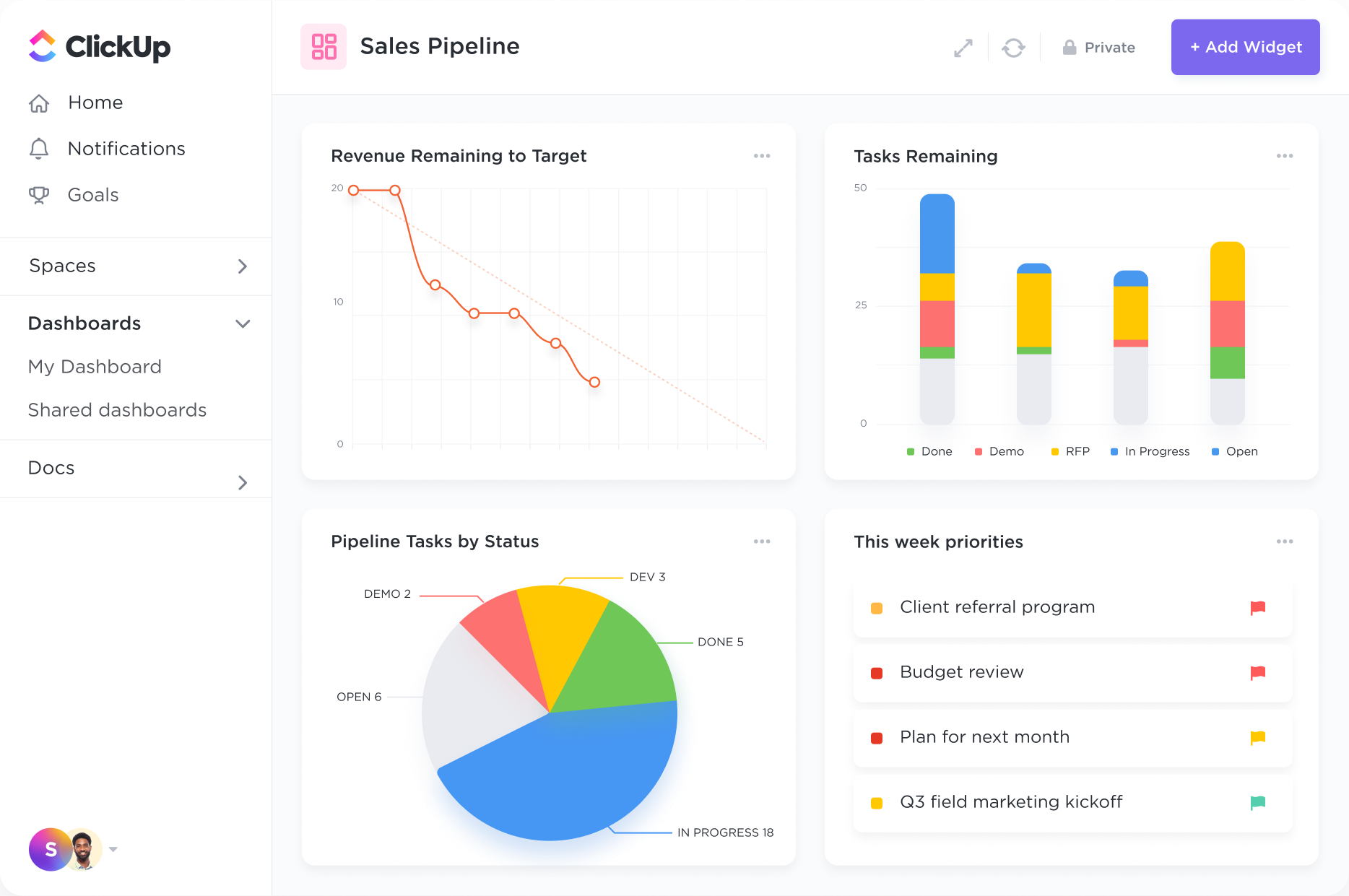Analyze data for customer insights.
Create high-level views to monitor customer lifetime value, average deal sizes, and more. ClickUp's 50+ Dashboard widgets make it easy to visualize all of your customer data in one place.

Streamline your importer business with a customized CRM system powered by ClickUp. Organize leads, track customer interactions, and drive sales growth with ease. Say goodbye to manual data entry and hello to a more efficient way of managing your importing business. Try ClickUp now for a seamless CRM experience tailored to your needs.
Free forever.
No credit card.
Trusted by the world’s leading businesses
Create high-level views to monitor customer lifetime value, average deal sizes, and more. ClickUp's 50+ Dashboard widgets make it easy to visualize all of your customer data in one place.

Eliminate silos and fast-track communication by integrating your emails with ClickUp. Collaborate on deals, send project updates to clients, and onboard customers with a single email hub.

Key features of CRM software like lead management, contact organization, task automation, and sales tracking can benefit importers by streamlining customer communication, optimizing sales processes, improving customer relationships, and enhancing overall operational efficiency.
CRM software helps importers by centralizing supplier information, optimizing procurement processes, tracking orders, and managing inventory levels effectively. This enhances visibility, communication, and coordination across the supply chain, leading to improved efficiency and cost savings.
Yes, CRM software integrations are available that can seamlessly connect with customs clearance software, inventory management systems, and other import-related tools, facilitating smoother operations, data sharing, and streamlined processes across various business functions.